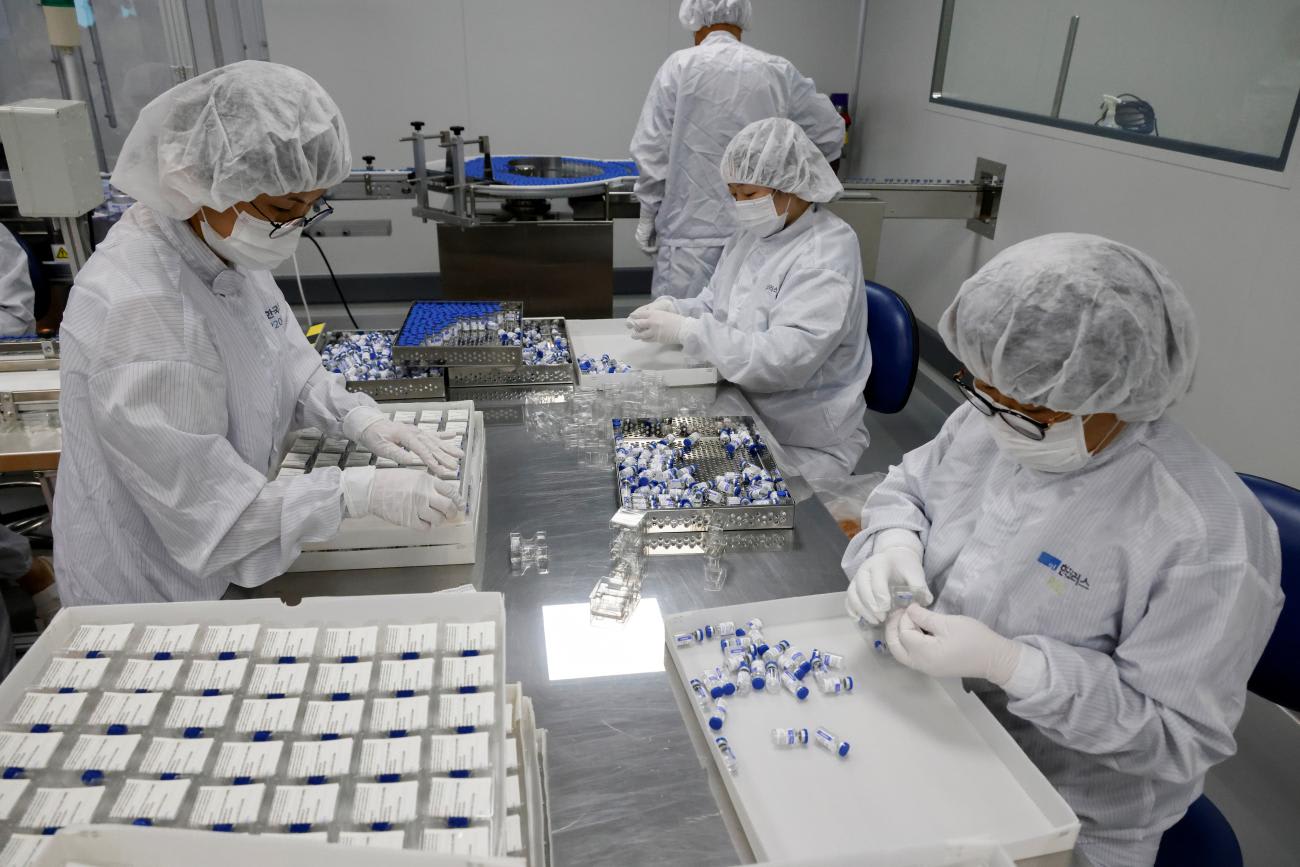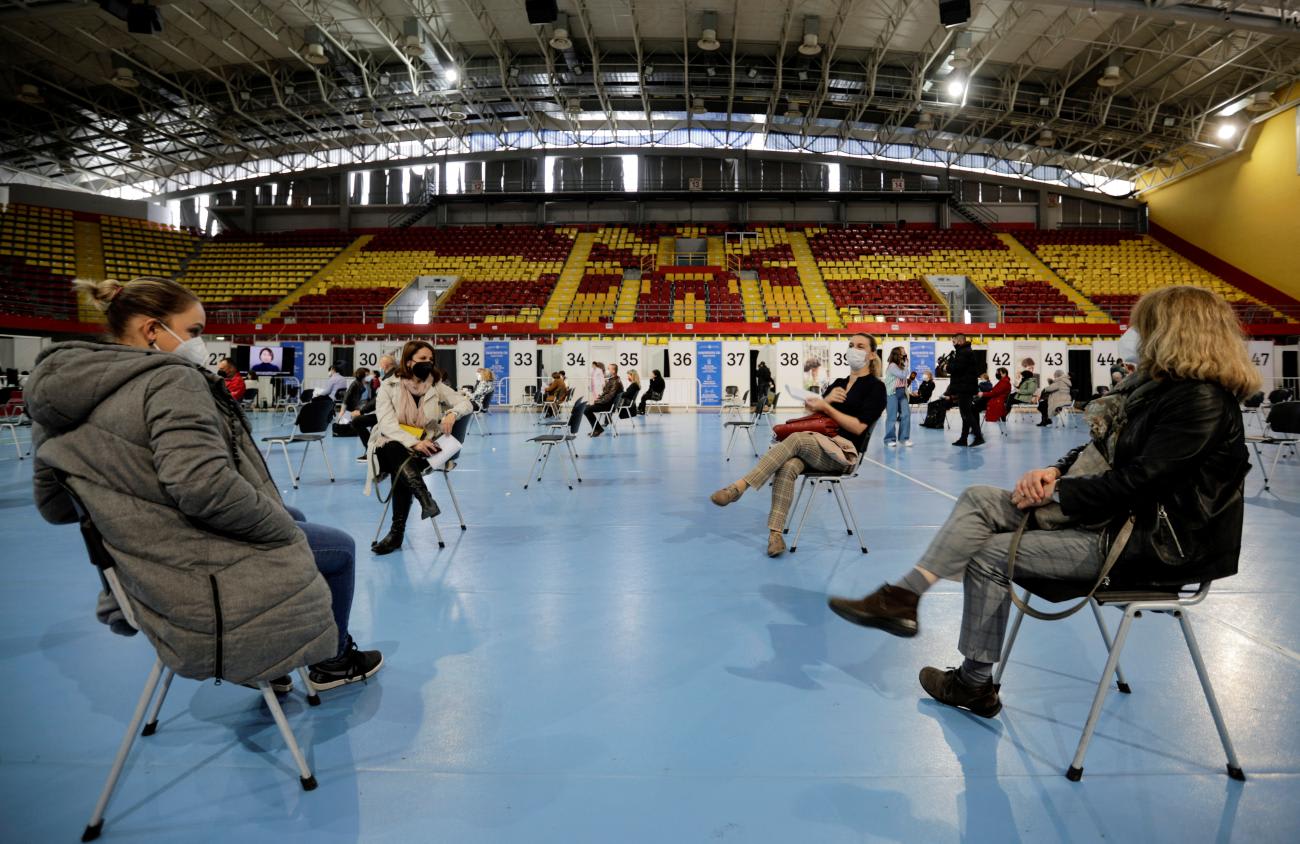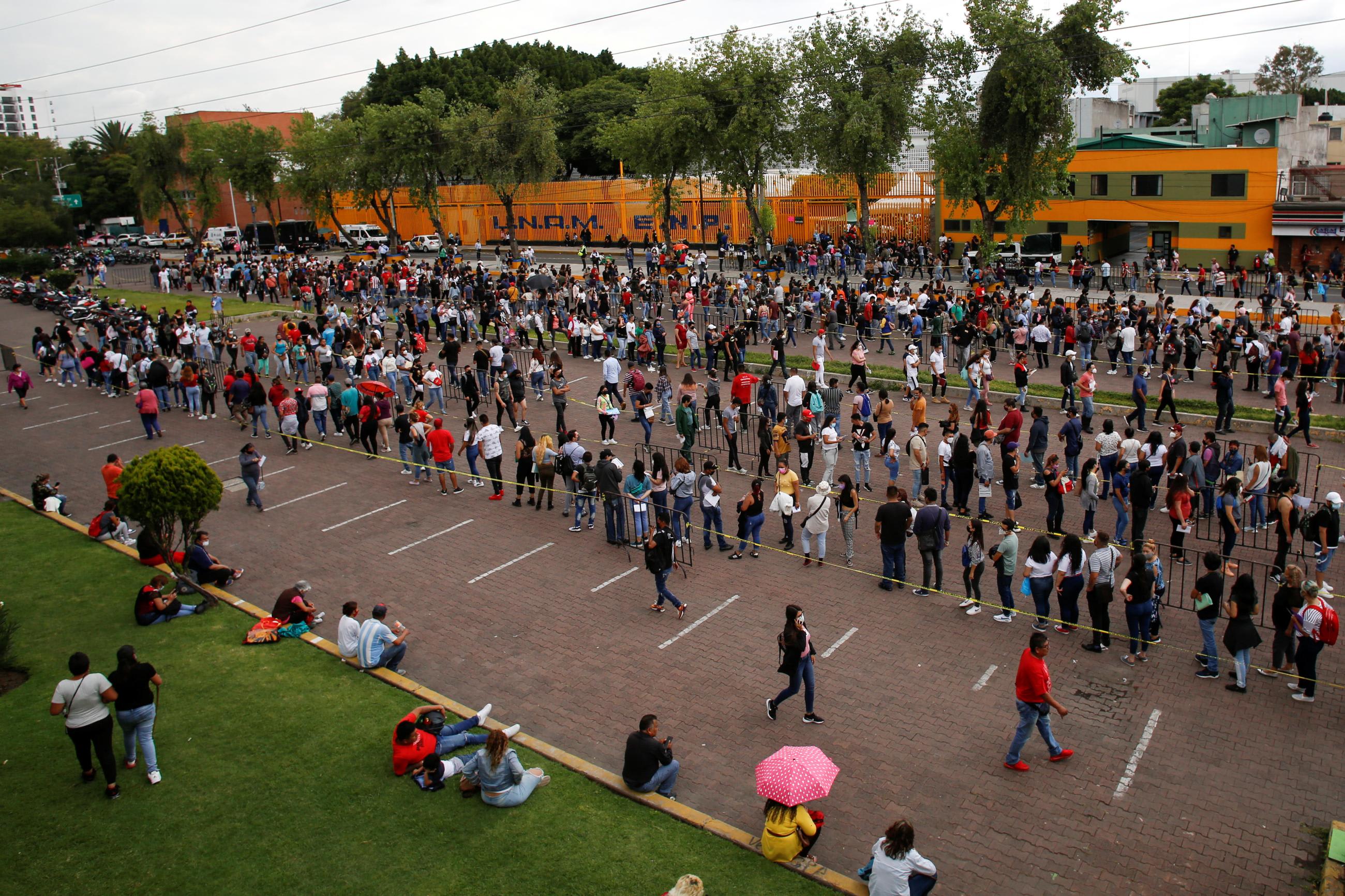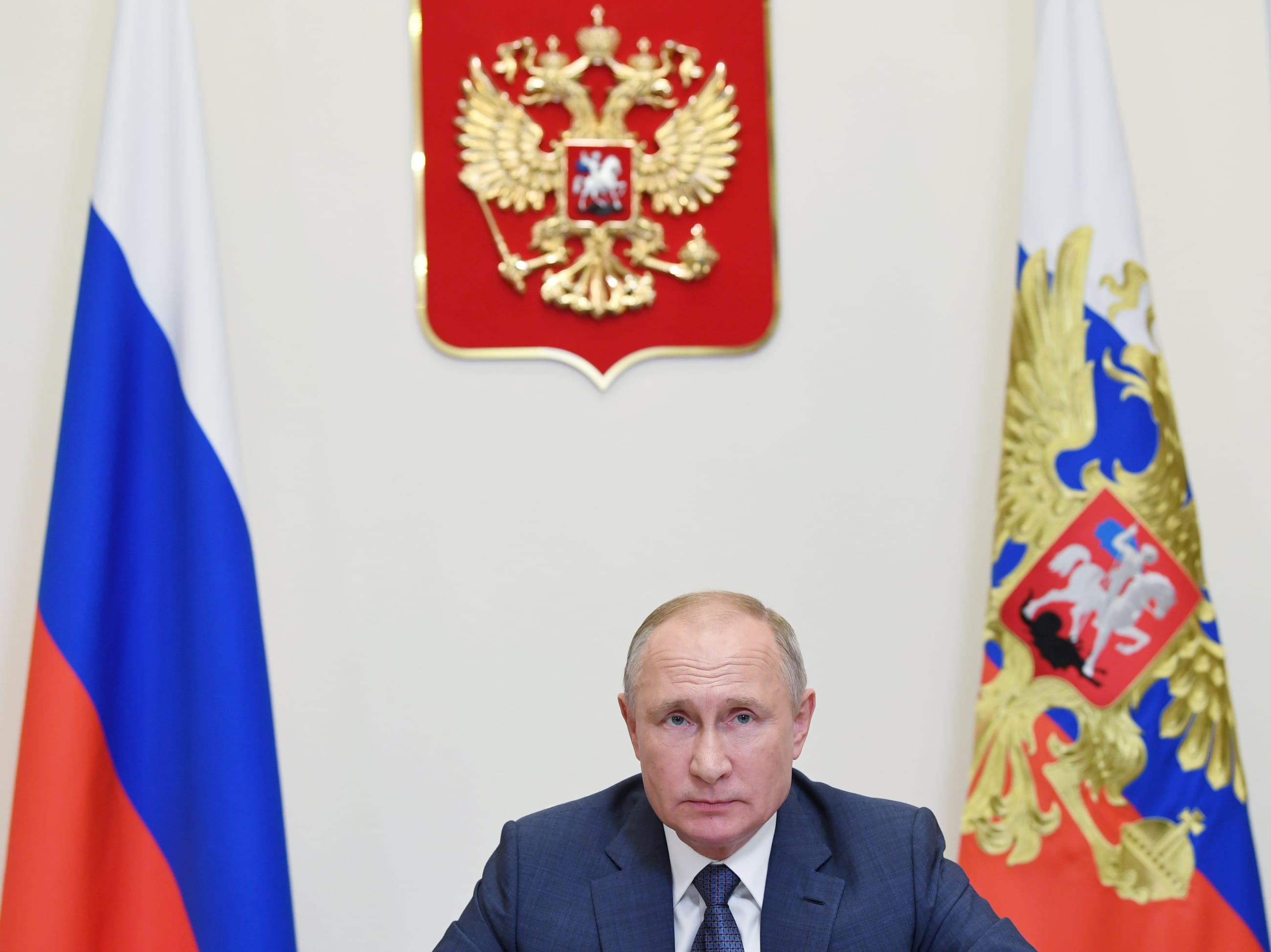The impact of the COVID-19 pandemic amid heightened great power competition underscores the need to understand how countries formulate foreign policy on global health. The pandemic, the war in Ukraine, and sanctions by Western governments have prompted Russia to change its foreign policy and use global health to seek new partners, competing for influence against the United States and its allies in low- or middle-income countries (LMICs).
The Russian approach to foreign policy often operates like dark matter—its impact cannot easily be detected with conventional analytical methods. In that vein, understanding Russian foreign policy on global health proves challenging. The task requires interpreting Moscow's interests in global health as part of developments in its domestic, military, and foreign policies. In addition, the Kremlin's moves in global health lack transparency and remain a work in progress.
Even so, Russia has charted new foreign policy directions that deserve more attention in a world in which health threats and geopolitical rivalries are growing.
Russia's New Foreign Policy Strategy and Global Health
Russia has engaged in global health cooperation as it transitioned from the Soviet Union's collapse into a global power with its own agenda. Until recently, however, it had not directly discussed health activities in its foreign policy strategy. In March 2023, one year after the Ukraine war began, Russian President Vladimir Putin issued an updated strategic foreign policy document—the Foreign Policy Concept (FPC)—that links political and military strategies, highlights the importance of regions in creating centers of anti-Western resistance, and emphasizes policy flexibility and multipolar fragmentation in addressing global issues.
The FPC sees global health engagement as a tool for shaping the new world order
The FPC reveals that Russia considers global problems and crises as geopolitically important. In October 2023, President Putin argued, for example, that the Ukraine war is not a territorial conflict or about establishing a regional balance of power. "Everything is increasingly wider and more fundamental," Putin asserted, "and relates to the principles of the future world order."
The FPC sees global health engagement as a tool for shaping the new world order. It charts a course for Russian global health efforts to counter Western politicization of health, help countries and regions prepare for and respond to epidemics and pandemics, combat noncommunicable diseases, and enhance international scientific cooperation.
That approach links global health and biosecurity and supports Russia's interests in exporting security and gaining geopolitical advantages by helping countries address their health needs.

The FPC also includes major changes from earlier Russian foreign policy thinking on global health. It does not mention the World Health Organization (WHO), prioritizes the role of nation-states and bilateral relations, and excludes nonstate actors. That approach recalls the Soviet-era focus on state-centric bilateral cooperation and reflects Russia's broader foreign policy interests in strengthening relations with LMICs.
Moscow supplements the FPC with its strategy on Russian international development activities, first adopted in 2014 but amended in 2023. Under the revised strategy, Russia will support multilateral development efforts but prioritize leveraging its experience in aiding countries by expanding its bilateral development programs.
Although Russia's new approach to global health is still developing, it is part of Russia's broader response to national security risks identified in the FPC—namely, the decline of "diplomacy as a way of peaceful dispute settlement" and the "blurring of the line between military and nonmilitary means" in confrontations between states. Addressing these risks, Russia prioritizes its technologies and expertise in handling threats and emergencies and calls for a redesigned global order.
Seeking Presence Before Influence
The changed Russian foreign policy approach to global health operates in a specific context that helps explain why Russia is using global health as a foreign policy tool. The war in Ukraine caused a global crisis, provoked sanctions, and created geopolitical disadvantages for Russia.
Heightened global health involvement has provided channels for defending and advancing Russia's interests. For example, it has ensured that Russia's voice is heard in multilateral negotiations, including those concerning the WHO Pandemic Agreement and the Biological Weapons Convention (BWC). It helps mitigate the impact of the sanctions and the geopolitical risks associated with the Ukraine war. Russia is also building on how its vaccine diplomacy during COVID-19 contrasted with Western vaccine nationalism and is presenting itself as a great power with global health ambitions.
Russia is particularly keen to prioritize regional centers of power in its foreign policy on health rather than use existing multilateral institutions. Health aid often supports military assistance, economic investments, or trade deals in advancing Moscow's strategic goals. In taking this approach, Russia offers LMICs its experience in modernizing the economy, social services, and public administration through advanced technologies and digital solutions for government management systems, including public health.
Russia is not trying to create a competing global health model to challenge the United States
In that sense, Russia is not trying to create a competing global health model to challenge the United States. Instead, it aims to assist other countries by promoting its vision of development and addressing unmet needs in the existing global health system. That case-by-case approach involves tailoring support to the specific needs and interests of each country, focusing on strategically important regions.
The strategy resonates with the Russian tradition of military and political thinking on what constitutes a successful foreign policy and how diplomacy operates during war. Like Soviet policymakers before them, Russian leaders do not view conflict as the breakdown of diplomacy but instead as its continuation in another form. Under Russian military-political strategy, military power and national security dictate the pathways for diplomatic actions.
Russian foreign policy on global health follows that strategy's principles, including the idea that presence outweighs influence. During COVID-19, for example, Russia did not wait for the WHO's approval of its Sputnik V vaccine before starting direct distribution to countries willing to approve or produce it. Amid the Ukraine war, Russia maintains its presence at the WHO and the United Nations while focusing on bilateral cooperation with nations to approve or manufacture Russian-made medicines, enhance infectious disease management, and develop research and education.
Moscow's global health approach also adheres to other tenets of Russian strategic thinking, such as that technology does not guarantee a political victory. The key to success lies in shaping politics and political perceptions. Sputnik V was not as advanced as the mRNA vaccines from Moderna and Pfizer, but Russia used digital tools to market its vaccine and shape public perceptions, allowing it to distribute the vaccine to more than 70 countries through bilateral channels. It prioritized technology transfer because of domestic production limits, the impact of sanctions, and pandemic-related supply-chain disruptions. The Russian approach capitalized on the global vaccine race and the anger caused by Western vaccine nationalism.

Like the Soviet Union during the Cold War, Russia is now concentrating on empowering LMICs aiming to gain political leverage in multilateral negotiations on global health and other issues. Unlike during the Soviet era, Moscow today is involving the Russian private sector in its diplomatic activities. That approach involves protecting commercial secrecy and makes tracking what the Kremlin is doing more complex and difficult to assess.
Russia's actions underscore its increasingly assertive role in shaping international affairs, legal frameworks, and global trade. The complexity of the strategy requires detailed country-level and regional analyses to understand Russia's impact on global health diplomacy and security, particularly in regions of growing importance in international politics, including Africa, Latin America, and Southeast Asia.
Russian Know How in Global Health
For several reasons, Russian foreign policy on global health is less visible and largely ignored by Western experts. Unlike the United States, Russia lacks a specific strategy for global health security. As Russia's isolation from the West grew over the past decade, Moscow has increased cooperation through bilateral relations and collective forums, including the BRICS group (bloc of nations including Brazil, Russia, India, China, and South Africa) and the Shanghai Cooperation Organization. By the start of the Ukraine war in 2022, Russia was not involved in U.S.-backed global health initiatives, such as the Global Health Security Agenda, and was focused on protecting its interests in UN and WHO-based negotiations on the BWC and WHO pandemic agreement—a task that the invasion made more difficult.
Even so, Russia integrated global health into its foreign policy to enhance ties with LMICs and boost its global influence. The COVID-19 pandemic deepened Russia's focus on biosecurity and its alignment with goals of LMICs.
Russia integrated global health into its foreign policy to enhance ties with LMICs and boost its global influence
Moscow has connected its commitment to biosecurity to its efforts to maintain and grow its trade, economic, and military relations with other countries to reduce the impact of sanctions. Russia has, for example, used increased military engagement with countries, such as Uganda, to create opportunities for bolstering its engagement on global health issues in Africa. By exploiting discontent in LMICs created by Western behavior during COVID-19, the Kremlin uses decolonization as a rationale for its global health involvement.
Russia deploys various government agencies, such as the Ministry of Industry and Trade, the Ministry of Defense, and the Federal Service for the Oversight of Consumer Protection and Welfare (Rospotrebnadzor), to promote exports of health products and services to countries keen to achieve self-sufficiency in national pandemic preparedness and public health. The Ministry of Defense and civilian government agencies collaborate in aligning national biosecurity efforts, such as the pandemic preparedness program Sanitary Shield, with Russian foreign policy on global health.
In addition, the Ministry of Industry and Trade supports and subsidizes Russia's private sector, primarily pharmaceutical companies not subject to Western sanctions, in accessing foreign markets interested in supporting national biosecurity. Moscow also facilitates technology transfers to help LMICs that have a history of political proximity or military cooperation with Russia or that have regional importance, such as Venezuela, address health problems, including noncommunicable diseases.
Those lines of effort focus on the state as the main instrument of modernization, as it was during the Soviet era. The foreign policy strategy also leverages Russia's expertise in combating infectious diseases while promoting its securitized public health model.
Why It Matters
Despite two years of war and the associated international consequences of the conflict, Russia has redefined its foreign policy strategy to be more global and multifaceted. The new strategy builds health engagement into the political, economic, and military domains of Russian foreign policy, making such engagement support soft and hard power. That use of global health in foreign policy is complex and hard to track. It focuses on bilateralism frequently based on verbal agreements rather than written documents, relies on private-sector actors and technologies often shrouded in economic and commercial secrecy, and is tailored to the diverse priorities of each country and region.
That complexity, however, does not obscure that global health in Russian foreign policy has little interest in strengthening the established global health architecture but instead seeks to demonstrate that Russia is a great power with a global strategy based on its science, technological, and health security capabilities that offers countries help in improving their biosecurity and public health capacities. Depending on the needs of partner countries, Russia can help improve pandemic readiness, support scientific collaborations, provide technological aid, develop health infrastructure, and facilitate trade and economic relations with Russian biotech, pharmaceutical, and other companies.
The West should understand that Russian foreign policy on global health does not function as a separate, temporary endeavor designed just to mitigate the impact of Western sanctions. Instead, Russian health engagement—combined with political, economic, and military initiatives—supports the broader foreign policy strategy of making Russia a global power in an international system not dominated by the United States and its allies.

EDITOR'S NOTE: This article is the first installment in a series exploring Russia's foreign policy on global health guest edited by Nataliya Shok. The rest of the articles in the series can be found here.












